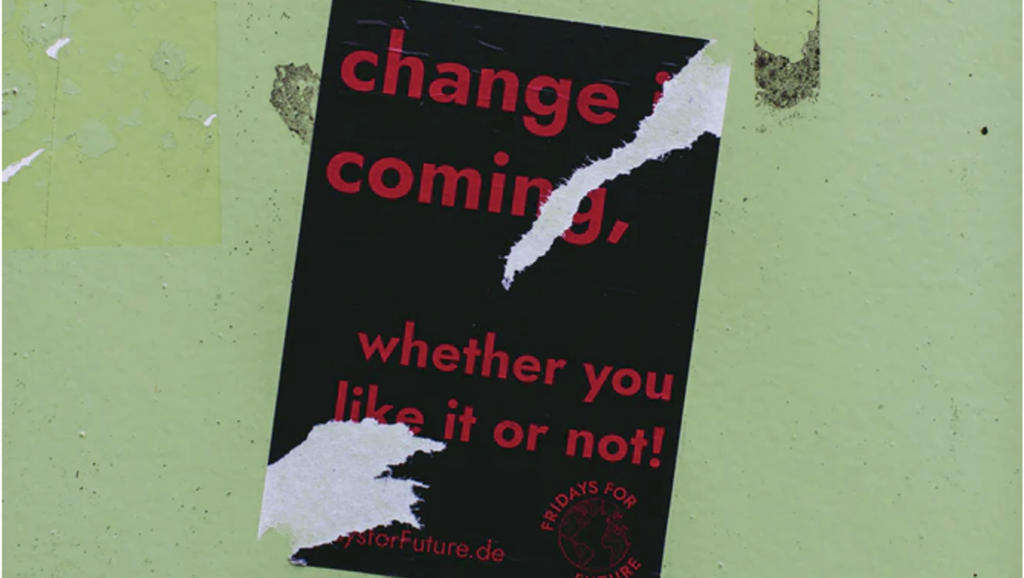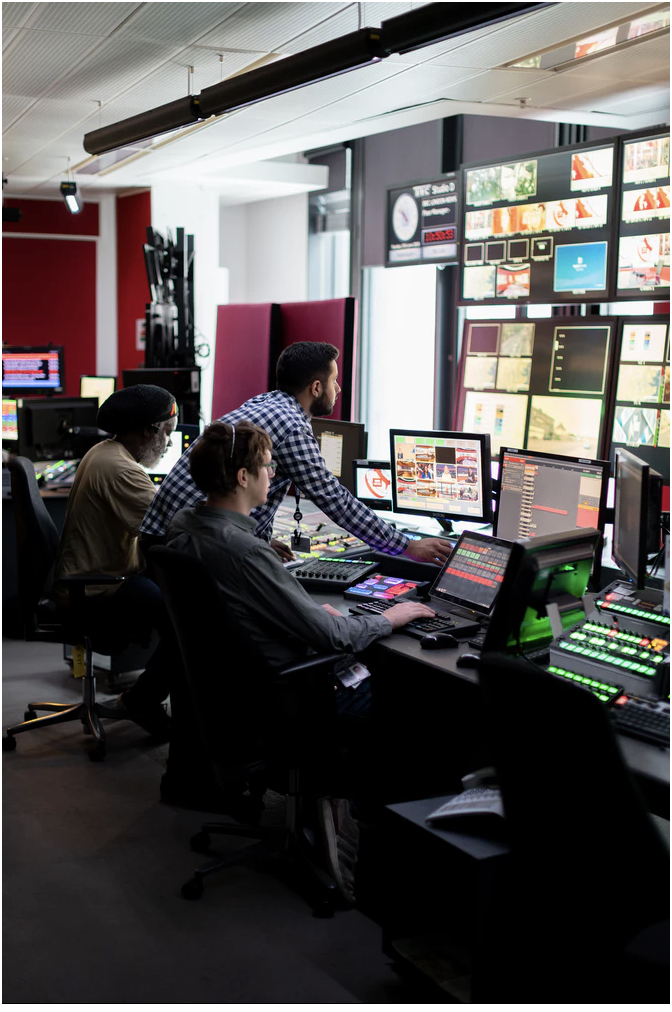
“In the news…” What are public perceptions of changing literacies in our digital age?
In the past, literacy has been viewed in a traditional sense with the focus being on reading and writing skills. Over the years, this definition has developed and is now viewed as “…a set of supple, variable, communication strategies, ever-diverging according to the cultures and social languages of technologies, functional groups, types of organization and niche clienteles.” (Cope & Kalantzis, 2009). While this change is inevitable in our developing and progressing world, the responses from the public vary immensely. While some are accepting and excited about the changing literacies in our digital age, others are fearful, worried, and even disgusted.

On one side of the spectrum, some individuals are excited about the digital age and the possibilities it brings. Dr. Caitlin Tucker states that, “Technology is increasingly woven into the fabric of our lives. It must also be woven into the fabric of education to help students hone the skills they need to be truly literate in today’s society.” In response to Tucker’s article, many comments were left agreeing with her stance and adding to discussion saying, “…the definition of literacy must evolve.” And “As a current (and future) educator, I see more benefits coming from having and using technology in the classroom.” (Carter, 2018). In another article written by Liana Loewus, she explains that “Just like we teach nonfiction and fiction at a very young age, I think we can talk to preschoolers and kindergartners about different kinds of texts…” (2016). She believes that there is no harm in exploring the changing literacies of our world, and that we should be developing all types of literacy “simultaneously” from the get-go. She leaves us with one final message that I think sums out the various articles and comments I read from people who are excited about the changing literacies and that is that “…reading isn’t just reading print text anymore. Reading is reading the world.” Those who accept and are excited about the changing literacies realize that the world has evolved, and we must evolve with it.

On the other side of the spectrum, some reactions towards changing literacies are not as positive as the ones viewed in the paragraph above. From beliefs that changing literacies have negative impacts, to the fear of not being proficient, to the sadness and resistance of change itself, some of the perceptions circling our changing literacies are adversative. The first common criticism we see from the public is their belief that the changing literacies have negative impacts on humanity. In an article written by Maria Yienger, she states that, “Overexposure to technology can adversely affect reading habits, and negatively impact development and personal interactions during a child’s formative years.” (2016). This is one of many who argue this viewpoint. Another common theme that arises from the public is their fear of not being proficient and/or equip to teach in our digital age. Wili Liberman stated that, “…a study in the United States, reported that 42% of teachers surveyed felt that students knew more about technology and its uses than they did. Factor in the lack of relevant professional development as well as a lack of access in certain regions, then it isn’t difficult to make the leap that some teachers are reluctant to move forward with technology integration in their classrooms.” (2018). Finally, we have the people who simply do not like change. They are comfortable in their ways and are happy to continue as is. A comment left on Dr. Tucker’s blog stated, “I kind of think it’s a little sad how our literacy can be judged by technology now instead of how well we read and write.” (Amanda, 2014). Whether this resistance comes from believing that new literacies are less important than our traditional literacies, or from the uncomfortableness that comes with change, many individuals simply just do not want to change despite the changing world around us.

After looking into many articles and reading the various opinions and perceptions around the changing literacies, I feel the knowledge I have gained in EDCI 410 taking shape and solidifying. The various readings and discussions we have done constantly popped up in my mind while reading other people’s thoughts. The thing that kept coming back to me was something from the Cope and Kalantzis reading. They stated that, “The kind of person who can live well in this world is someone who has acquired the capacity to navigate from one domain of social activity to another, who is resilient in their capacity to articulate and enact their own identities and who can find ways of entering into dialogue with and learning new and unfamiliar social languages” (2009). I think we need to teach all domains to an individual because none of them work independently of one another. As Cope and Kalantzis said, “…written language is not going away. It is just becoming more closely intertwined with the other modes…” (2009). The world is changing and there is no denying that we must be willing to adapt and change with it. Due to the changing nature of communication, we must become multiliterate and be able to comfortably move from one domain to another in order to succeed. I think the views of those who are hesitant are valid; however, I believe if we have a growth mindset and take to time to train ourselves in the areas we are not as comfortable, and if we provide a balance and incorporate all domains in our everyday learning and living, that our changing literacies can only benefit us.
The last thing I want to leave you with is this TedTalk. If you have time, and are interested, check out this TedTalk that looks at why and how we can reinvent education for our digital age, and the benefits it will have for individuals and society.
Photo Credits: Header photo by Markus Spiske on Unsplash
Resources
Amanda. (2014, October 14). I kind of think it’s a little sad how our literacy can be judged by technology now instead of how. [comment on the post “The Defintion of Literacy is changing”]. Dr. Catilin Tucker. https://catlintucker.com/2014/10/the-definition-of-literacy-is-changing/
Carter, B. (2018, September 29). As a current (and future) educator, I see more benefits coming from having and using technology in the classroom. [comment on the post “The Definition of Literacy is Changing”]. Dr. Catilin Tucker. https://catlintucker.com/2014/10/the-definition-of-literacy-is-changing/
Cope, B. & Kalantzis, M. (2009). “Multiliteracies”: New Literacies, New Learning, Pedagogies: An International Journal, 4:3, 164-195, DOI: 10.1080/15544800903076044
Liberman, W. (2018, May 24). Are Teachers Afraid of Technology? Education for Today and Tomorrow | L’Education Aujourd’hui et Demain. https://teachmag.com/archives/8430.
Loewus, L. (2016, November 3). How Should Reading Be Taught in a Digital Era? Education Week. https://www.edweek.org/teaching-learning/how-should-reading-be-taught-in-a-digital-era/2016/11.
Middlebeck, D. (2019, October). Re-Inventing Education for the Digital Age. [Video]. TED. https://www.ted.com/talks/david_middelbeck_re_inventing_education_for_the_digital_age
Tucker, C. (2014, October 6). The Definition of Literacy is Changing. Dr Catlin Tucker. https://catlintucker.com/2014/10/the-definition-of-literacy-is-changing/.
Yienger, M. E. (2016, March 1). Too Much Tech Harms Reading Retention in Young Children. Inquiries Journal. http://www.inquiriesjournal.com/articles/1374/too-much-tech-harms-reading-retention-in-young-children.
**Please note WordPress does not allow you to do hanging indents for APA formatting**
